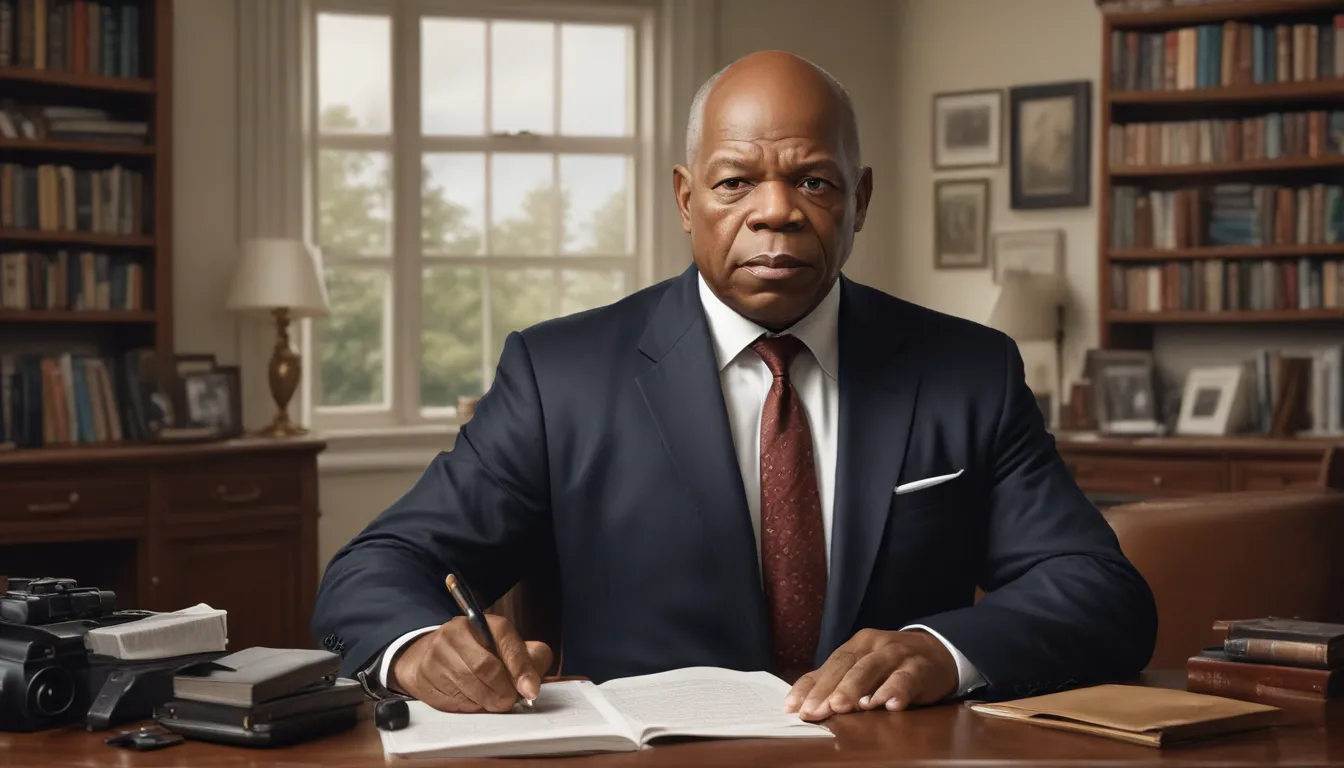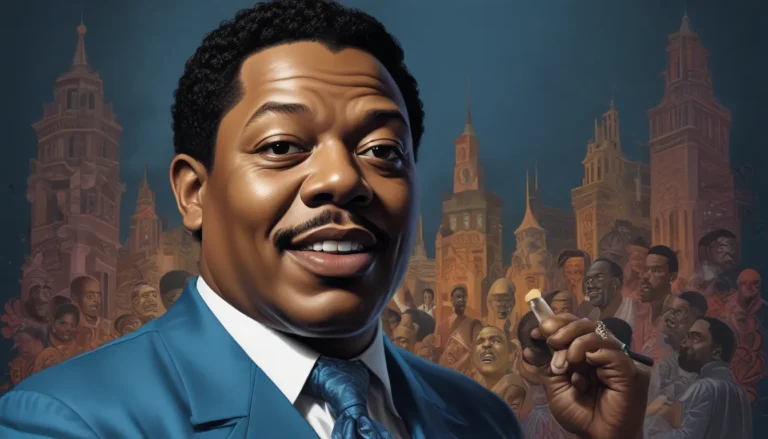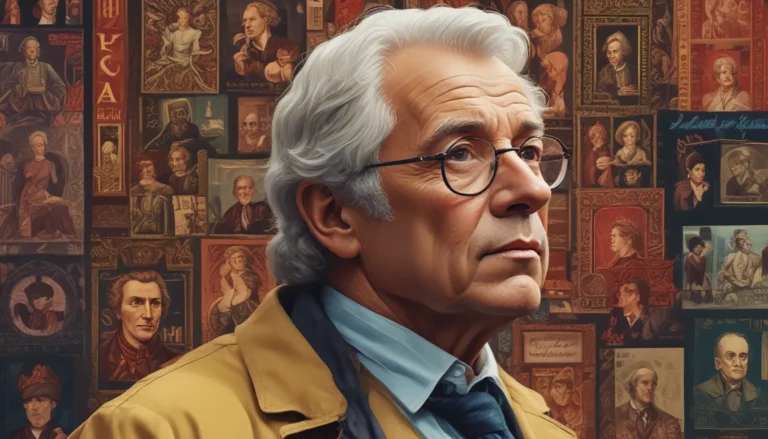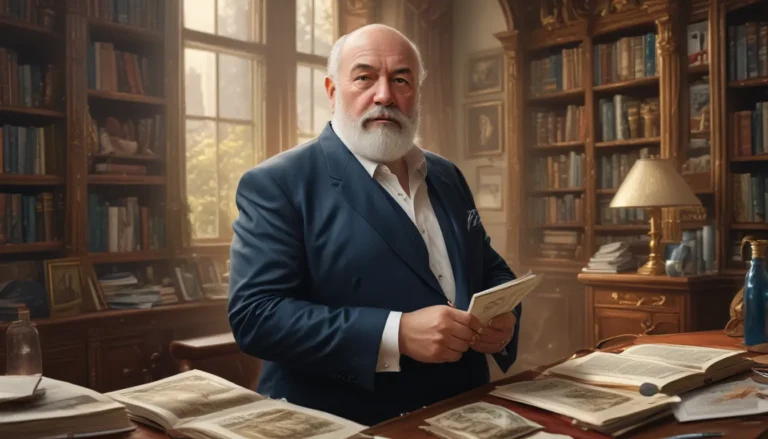The images in our articles may not match the content exactly. They are used to grab your attention, not to show the exact details in the text. The images complement the text but do not replace it.
John Lewis, a towering figure in the civil rights movement and a revered congressman, dedicated his life to advocating for equality and justice. Born on February 21, 1940, in Troy, Alabama, Lewis grew up in a segregated society, witnessing the injustices faced by African Americans first-hand. Throughout his career, he emerged as a fearless leader, participating in iconic protests and demonstrations that shaped the course of American history. In this article, we will delve into 19 intriguing facts about John Lewis, shedding light on his life, achievements, and lasting impact on society.
John Lewis: A Champion of Civil Rights
John Lewis, an American politician and civil rights activist, played a pivotal role in the 1950s and 1960s civil rights movement. His unwavering commitment to racial equality and justice elevated him to legendary status in American history.
Early Life and Inspiration
Born in Troy, Alabama, on February 21, 1940, Lewis experienced the harsh realities of segregation and discrimination from a young age. His upbringing fueled his passion for fighting for equal rights.
Influence of Martin Luther King Jr.
Lewis was profoundly influenced by the teachings of Martin Luther King Jr., embracing the principles of nonviolent resistance and equality that guided his activism in the civil rights movement.
Iconic Leader of the Civil Rights Movement
As one of the “Big Six” leaders of the civil rights movement, Lewis organized and spearheaded significant protests, including the historic March on Washington in 1963.
Advocate for Voting Rights
A central focus of Lewis’s activism was securing equal voting rights for African Americans. His leadership during the historic march from Selma to Montgomery in 1965 was a turning point in the fight for voting equality.
Congressional Career
Elected to the U.S. House of Representatives in 1986, representing Georgia’s 5th congressional district, Lewis served in Congress for over three decades, championing issues of racial inequality, healthcare, and gun control.
Accolades and Recognition
Throughout his life, Lewis received numerous awards for his exceptional leadership and contributions to the civil rights movement, including the Presidential Medal of Freedom from President Barack Obama in 2011.
Author of “March” Trilogy
Lewis co-authored the acclaimed graphic novel trilogy “March,” documenting his experiences during the civil rights movement. The series serves as a powerful educational tool for understanding this pivotal era.
Legacy of Activism and Sacrifice
Lewis’s pursuit of justice led to over 40 arrests and instances of physical violence. His steadfast dedication to nonviolent protest embodied his mantra of getting into “good trouble” to effect meaningful change.
Role in Desegregation Efforts
As a Freedom Rider challenging segregation on interstate buses in the South, Lewis risked his life to highlight the injustices faced by African Americans. His courage catalyzed support for the civil rights movement.
Lasting Impact on Society
Through his speeches and actions, Lewis inspired countless individuals to stand up against injustice and work towards a more inclusive and equitable society. His legacy of “good trouble” continues to resonate with generations.
Conclusion: John Lewis’s Enduring Legacy
John Lewis’s profound impact on civil rights and social justice will be remembered for generations to come. From his early activism to his distinguished congressional career, Lewis’s unwavering commitment to equality and justice shaped the course of American history.
FAQs
-
Major Accomplishments: Lewis played a pivotal role in the Civil Rights Movement, organizing significant protests and marches, including the historic March on Washington in 1963. He also served in the U.S. House of Representatives for over three decades, advocating for civil rights and social justice.
-
Advancement of Voting Rights: Lewis was a staunch advocate for voting rights and played a crucial role in the passage of the Voting Rights Act of 1965. His efforts helped dismantle discriminatory voting practices and ensure equal access to the ballot.
-
Inspiration to Others: Lewis’s commitment to nonviolence, courage in adversity, and belief in grassroots activism inspired countless individuals to stand up against injustice and strive for a fairer society.
-
Legacy: Lewis’s legacy is one of resilience, perseverance, and determination. His lifelong dedication to equality and justice serves as a beacon for future generations to pursue social change and embrace nonviolent protest.
Explore More: Discover the remarkable impact of John Lewis Gaddis, another influential figure who left an indelible mark on history.
Was this Page Helpful?
At the core of our content is a dedication to delivering engaging and trustworthy information. Each fact on our site is contributed by real users like you, ensuring a diverse range of insights. Our rigorous editorial review process guarantees that the facts we share are both captivating and credible. Trust in our commitment to quality and authenticity as you explore and learn with us.






